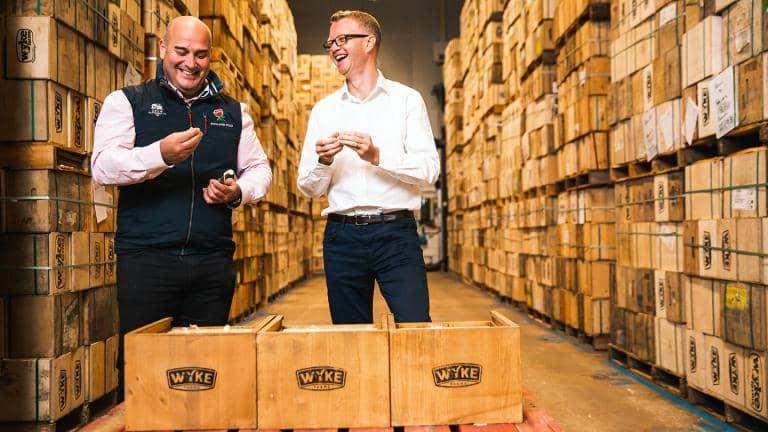
Investment Zones
How can UK manufacturers benefit from the Investment Zones policy? Our latest research in partnership with Make UK explores how businesses can unlock growth.


How can UK manufacturers benefit from the Investment Zones policy? Our latest research in partnership with Make UK explores how businesses can unlock growth.

Lee Collinson, our Head of MTL discusses the impact of the skills shortage, and how manufacturers are progressing on their journey to net zero in 2024.

Barclays and BDO, in conjunction with specialist sector research agency Analytiqa, have undertaken the latest in our series of surveys to assess confidence and expectations in the UK logistics sector.

UK manufacturers are moving ahead at pace with supply chain decarbonisation, our research suggests.
Read related insights

UK manufacturers are evolving to tackle supply chain challenges that have left £26bn of unfinished goods in limbo.

When the leading cheese-maker wanted to build a biogas plant in order to be 100% energy self-sufficient, its long-standing relationship with Barclays was key to funding its plans.

Barclays’ Head of Manufacturing on why Freeports could create jobs, drive investment and level up communities in the North of England.

The majority of MTL businesses have the strength and resilience to face turbulent times ahead and exploit any potential openings that come their way, says Lee Collinson, our Head of Manufacturing, Transport and Logistics.

More and more UK manufacturing businesses are using new digital technology. This report looks at some great examples.
As well as a dedicated Relationship Director you will also have access to a variety of products and solutions.
The manufacturing, transport and logistics sector faces many different challenges and opportunities. To meet your specific needs, we provide specialist teams.
Click on the areas below to find out more about how Barclays can support you.
Our team has worked with many of the world’s largest aerospace and defence companies.
By drawing on our knowledge, experience and industry relationships in this sector to help you grow your business – and can provide financing expertise to support projects of any scale.
Benefit from:
From food and drink to metals, aerospace and machinery, electronics to pharmaceuticals, our relationships with leading manufacturers enable us to stay ahead of this continually evolving sector.
With a strong focus on sustainability, supply chain risk and high-value manufacturing, we are committed to helping your business achieve its short and long-term objectives.
Benefit from:
We have extensive experience of meeting the banking, financing and strategic needs of this complex and highly-regulated sector.
From power suppliers and generators to water companies and energy distribution networks, we work closely with clients to help optimise financing, manage liquidity and ensure seamless, reliable customer payments and transactions worldwide.
Benefit from:
We are proud to be the chosen corporate banking partner of more than half of the top 50 transport and logistics companies in the UK.
We have long-standing experience of the complexity and competitiveness of this sector - and the financing solutions you need to grow within it.
Plus, through our membership and key sponsorship of the Chartered Institute of Logistics and Transport we can represent your views and help shape the future of the industry.
Benefit from:

Discover flexible, expert lending solutions built around your business – from meeting day-to-day expenditure to funding your ambitions for growth.

With an international network of local trade specialists, we offer a range of solutions to help you execute and expand your trading activities with confidence.

We provide a complete spectrum of solutions to enable your business to transact and trade easily, manage risks efficiently and finance its plans for growth.
Head of Manufacturing, Transport and Logistics

To discuss your business requirements and how Barclays can support you, contact us today.
